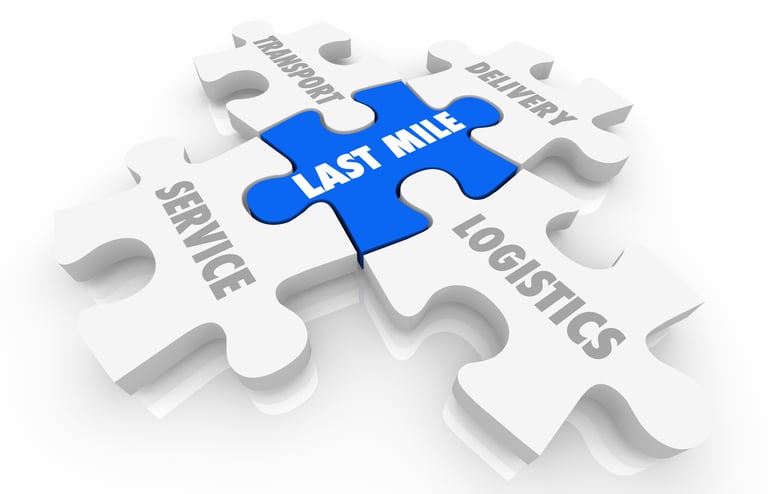
Efficient Final Mile Delivery Solutions

Discover how efficient final mile delivery solutions can revolutionize your transportation business and enhance customer satisfaction.
Understanding the Importance of Final Mile Delivery
Final mile delivery, the last leg of the delivery process where goods are transported from a distribution center to the final destination, is crucial for the success of any transportation business. This stage is pivotal because it directly impacts customer satisfaction and loyalty. Efficient final mile delivery can lead to faster delivery times, reduced costs, and a higher level of service.
In today's competitive market, customers expect quick and reliable deliveries. The final mile represents the last opportunity for companies to impress their customers. Failure to deliver on time can result in dissatisfaction and loss of business. Therefore, optimizing this phase is essential for maintaining a competitive edge.
Key Challenges in Final Mile Delivery
Despite its importance, final mile delivery presents several challenges. One of the primary issues is traffic congestion, especially in urban areas. Navigating through crowded streets can lead to delays and increased fuel consumption, which impacts the overall efficiency and cost-effectiveness of deliveries.
Another significant challenge is the variability in delivery destinations. Unlike standardized routes for bulk shipments, final mile deliveries often involve multiple stops with varying distances and delivery conditions. This variability can complicate route planning and increase the likelihood of delivery errors. Additionally, the rise of e-commerce has heightened customer expectations for speedy deliveries, further straining the final mile delivery process.
Innovative Technologies Transforming Final Mile Delivery
To address these challenges, the transportation industry is increasingly turning to innovative technologies. One such technology is route optimization software, which uses algorithms to determine the most efficient routes for deliveries. This not only reduces travel time but also minimizes fuel consumption and operational costs.
Another transformative technology is the use of autonomous delivery vehicles and drones. These solutions are being piloted to handle small parcel deliveries, especially in congested urban areas. Additionally, real-time tracking systems provide customers with accurate delivery updates, enhancing transparency and trust. The integration of these technologies is paving the way for more efficient and reliable final mile delivery solutions.
Strategies for Improving Final Mile Efficiency
Improving final mile efficiency requires a combination of strategic planning and technological implementation. One effective strategy is investing in a robust delivery management system that can streamline operations and provide real-time data for better decision-making. This system should integrate with other logistics software to provide a cohesive overview of the entire delivery process.
Another strategy is optimizing warehouse locations to reduce the distance to the final delivery points. Implementing local micro-fulfillment centers can significantly cut down delivery times. Additionally, offering flexible delivery options, such as scheduled deliveries or parcel lockers, can reduce failed delivery attempts and enhance customer satisfaction. Training delivery personnel and investing in eco-friendly delivery vehicles can also contribute to more efficient and sustainable final mile delivery operations.
The Future of Final Mile Delivery in Transportation
The future of final mile delivery in transportation looks promising, with continuous advancements in technology and evolving customer expectations. The integration of artificial intelligence (AI) and machine learning in route planning and customer service is expected to further enhance delivery efficiency and personalization.
Moreover, the rise of smart cities and the Internet of Things (IoT) will provide more data and connectivity, enabling more precise and efficient delivery operations. Sustainability will also play a significant role, with increased emphasis on reducing carbon footprints through electric vehicles and green delivery practices. As these trends continue to develop, transportation businesses that adapt and innovate will be well-positioned to excel in the final mile delivery landscape.

